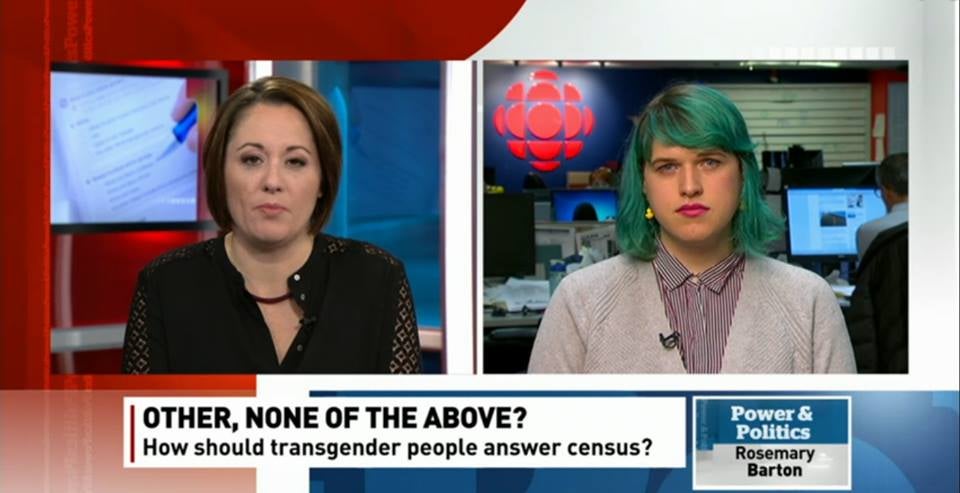Canadian transgender and non-binary student, Quinn Nelson, calls for ‘third gender option’ in census
Student writes to politician and insists Canadian government 'really need to know what their population is'

Your support helps us to tell the story
From reproductive rights to climate change to Big Tech, The Independent is on the ground when the story is developing. Whether it's investigating the financials of Elon Musk's pro-Trump PAC or producing our latest documentary, 'The A Word', which shines a light on the American women fighting for reproductive rights, we know how important it is to parse out the facts from the messaging.
At such a critical moment in US history, we need reporters on the ground. Your donation allows us to keep sending journalists to speak to both sides of the story.
The Independent is trusted by Americans across the entire political spectrum. And unlike many other quality news outlets, we choose not to lock Americans out of our reporting and analysis with paywalls. We believe quality journalism should be available to everyone, paid for by those who can afford it.
Your support makes all the difference.A Canadian transgender student, who identifies as neither male or female, has called for an “accurate reflection of the country” in the nation’s 2016 census questionnaire by asking for a third gender option.
Quinn Nelson, a student of sociology at the University of Calgary in the province of Alberta, told Canadian news site CBC the government “really need to know what their population is” when making decisions.
Nelson, who identifies as being a “non-binary person” - neither male or female - said they didn’t want to break the law by not completing the form, and so took the liberty to write to Canadian politician Navdeep Singh Bains who is responsible for Statistics Canada - the agency which provides statistical information and analysis about the North American country’s economic and social structure.
One of the challenges for those who identify as being non-binary is being able to get different pronouns and options when it comes to legal documentation.
According to charity Trans Media Watch, being non-binary is different from being intersex. The charity says: “Most non-binary people are born with bodies that look conventionally male or female, but grow up feeling different.”
In Nelson’s original email, however - which was posted onto Facebook - the student wrote to Bains: “I have a major concern however with the exclusionary way the category of gender/sex has in the past been strictly limited to an option of either male or female. As a non-binary transgender individual, I would be wholly unable to fill out a census accurate and completely.”
Despite not receiving a reply from Bains, Nelson revealed they did receive one from Connie Graziadei, assistant chief statistician with Statistics Canada, who said the questionnaire was “already created and printed, and that sex options will only have the binary options of male and female.”
Speaking of the reply received from Graziadei, Nelson wrote: “Transgender people are encouraged to choose the option with which they most closely identify. Acknowledging that this does not leave room for non-binary people to answer, Connie recommended to me that I leave the question blank, indicate in the comments why I left the question blank, and how I feel the question was inadequate.”
“Pretty happy with the response,” Nelson told CBC the 2021 census should have an “other” option for the government is to effectively track the transgender population in Canada.
Recently, the Independent reported on a student from Liverpool who described having to sign on as being female, despite identifying as non-binary. The student told the Liverpool Echo how services - like the NHS - provide the option of ‘Mx’ instead of the usual ‘Miss/Mr/Mrs’, and also added how “they/them” is a preferable way of being addressed, whereas others may opt for “ze, hir, hirs, and xe, xem, or xyr.”
Join our commenting forum
Join thought-provoking conversations, follow other Independent readers and see their replies
Comments